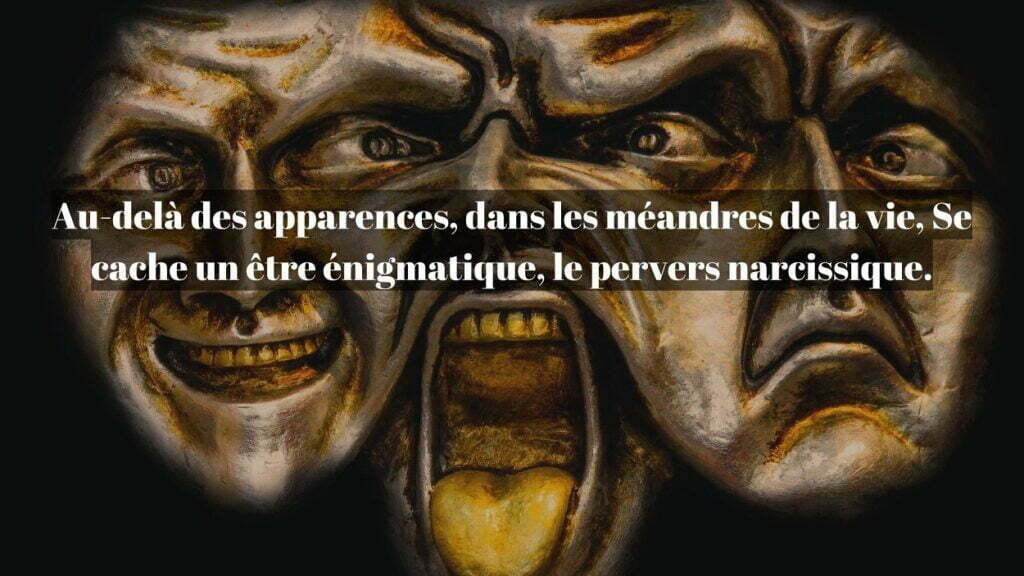Dostoïevski # Nietzsche
Friedrich Nietzsche and Fyodor Dostoyevski are considered two of the greatest thinkers in Western philosophy. Although both have had considerable influence on literature and culture, their worldviews are considerably different.
In their philosophical quotes about life, we will explore the main differences between Nietzsche and Dostoyevsky’s philosophies on life, on death, on suffering, on marriage, on happiness and on hypocrisy. By highlighting their unique perspectives on morality, religion, freedom and human nature.

The philosopher Friedrich Nietzsche (1844-1900) and the writer Fyodor Dostoyevski (1821-1881) were contemporaries who both wrote about the nature of truth and morality.
👉 In his book Beyond Good and Evil, Nietzsche argued that there is no objective reality; rather, we create our own values through our actions. He believed that people should live their lives according to their own desires, not those of society. This idea was later developed by existentialist philosophers such as Jean Paul Sartre (1905-1980).
The two philosophers were contemporaries, born a few months apart in
They both lived through the French Revolution and the Napoleonic Wars, which had a profound impact on their lives. Both men were influenced by the ideas of Kant, Hegel and Schopenhauer.
- Dostoïevski # Nietzsche
- Deep Philosophical Quotes about Life: Nietzsche and Dostoyevski in debate on life, on death, on suffering, on marriage, on happiness and on hypocrisy.
- [Video english subtitle] Philosophical quotes about life: Nietzsche and Dostoyevski in a debate on life
- What does “difference” mean in philosophy?
- Why do they have two deferential philosophies, Nietzsche and Dostoyevski?
Deep Philosophical Quotes about Life: Nietzsche and Dostoyevski in debate on life, on death, on suffering, on marriage, on happiness and on hypocrisy.
Dostoyevsky # Nietzsche: quotes about man
Dostoïevski said:
I think the best definition of man would be: two-footed and ungrateful creature.
Nietzsche responds:
Man is something that must be overcome.
What did you do to overcome it?
Man is a machine
so complicated that sometimes
we don’t understand anything about it, especially
if this man is a woman.
The true man wants two things:
danger and play.
This is why he wants the woman;
the most dangerous toy.
Dostoyevsky – Nietzsche: quotes about life
Dostoyevsky said:
Live any way you want, but live!
Nietzsche responds:
Do you want to have an easy life?
Always stay close to the herd,
and forget yourself in him.
What is better for us?
Let us know the truth about us
or that people say stupid things about us?
The certain prospect of death
could mix a drop with life
delicious and fragrant with carefreeness –
but, you made this drop
a foul poison,
which makes you disgusting
the whole of life!
Dostoyevsky quotes vs Nietzsche quotes on happiness
May everyone have the chance
to find precisely
the concept of life
which allows him to achieve
his maximum happiness.
I don’t wish you much
of happiness: you
would bore you. I do not wish you
no misfortune either;
but following the
a popular philosophy,
I repeat just live
more and try not to
don’t bore you too much.
Chase away boredom at all costs
is vulgar,
like working
without pleasure.
This is the misfortune,
because everything is
enigma in this world.
Dostoyevsky – Nietzsche: quotes on hypocrisy
Even a laugh undoubtedly
intelligent is sometimes repulsive […]
Laughter demands kindness,
and people mostly laugh
time badly […]
To some men
you must not
to give a hand,
but only the paw:
and I want that
your paw also has claws
The man suffers so deeply
that he must have invented laughter.
Dostoyevsky – Nietzsche: quotes on marriage
Marriage is
a long conversation.
Marriage is
moral death
completely independent.
Marriage is the form
the most liar
sexual relations;
that is why he enjoys the approval
pure consciences.
All love thinks of the moment
and eternity, but never duration.
Dostoyevsky – Nietzsche: quotes on the truth
My friend,
the real truth
is always improbable,
do you know this?
To make the truth plausible,
it is essential
add it with lies.
The state is the coldest
cold monsters.
He lies coldly;
and here is the lie
who escapes
from his mouth:
“I, the State, am the people.
Also read: Hypocrisy Quotes: friends, love [In the head of joker] 🃏
[Video english subtitle] Philosophical quotes about life: Nietzsche and Dostoyevski in a debate on life
What does “difference” mean in philosophy?
Deference is the attitude of respect toward people and their opinions that are different from ours. This attitude results in a certain distance from others. There is a big difference between deference and condescension. Deference is not about condescending to someone but rather about recognizing their intrinsic value.
Why do they have two deferential philosophies, Nietzsche and Dostoyevski?
There are several reasons for the differences between the philosophies of Nietzsche and Dostoyevski. First, they came from different cultural backgrounds, which influenced their ideas and perceptions of the world.
Nietzsche was a German philosopher born into a family of Protestant pastors, while Dostoyevski was a Russian writer born into a family of Orthodox rural nobility.
Additionally, they also had different life experiences that helped form their philosophies. Nietzsche suffered from chronic health problems throughout his life and spent many years in solitude, which may have contributed to his individualism and criticism of traditional religion and morality.
Dostoyevski, on the other hand, spent several years in prison and exile, where he encountered violence and human suffering, which may have fueled his interest in the question of guilt and redemption.
Also read: Beautiful Quotes Positive Life + Motivation Messages
Finally, their philosophies also differ due to their views on human nature and society.
Nietzsche emphasized individuality and freedom, criticizing moral and religious institutions that hinder the expression of the human will to power.
Dostoyevski, in contrast, emphasized community and brotherhood, upholding the importance of human solidarity for moral and spiritual redemption.




